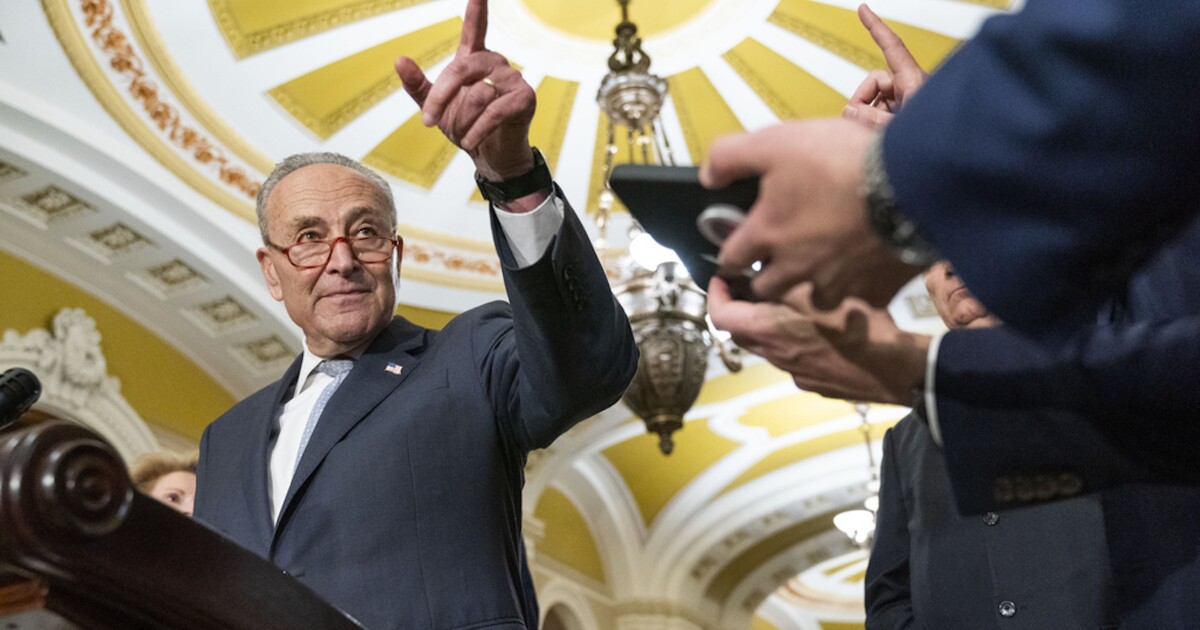

Two bipartisan pairs of senators are pitching competing insulin price cap measures as Senate Democratic leadership organizes a larger drug pricing legislation.
On one side are Sens. Susan Collins (R-ME) and Jeanne Shaheen (D-NH). The New England senators have co-chaired the Senate Diabetes Caucus, which Collins founded in 1997, for more than 12 years. The INSULIN Act would cap the monthly cost at $35 and require pharmacy benefit managers to pass 100% of rebates from manufacturers to insurance plans.
BIDEN STEPS ONTO 2024 CAMPAIGN TRAIL IN TRUMP’S SHADOW
They first introduced the bill last June but failed to advance it to the floor before the end of the 117th Congress. Senate Majority Leader Chuck Schumer (D-NY), who supported the measure, has vowed to get an insulin price cap deal through the chamber this session.
He is currently putting together a larger drug pricing reform bill with Sen. Bernie Sanders (I-VT), who chairs the Senate Health, Education, Labor, and Pensions Committee. The deal is expected to feature several measures, including reforms to how pharmacy benefit managers operate.
A Schumer spokesman did not respond to the Washington Examiner’s request for comment.
Speaking from the Senate floor late last month, Schumer included an insulin price cap bill among the items he wants to “begin the process of advancing” during this work period, which goes until the end of June.
It is unclear which price cap deal he was referring to, as he’s shown support for two.
Meanwhile, Sens. John Kennedy (R-LA) and Raphael Warnock’s (D-GA) bill would require private insurance to cap the cost of a 30-day insulin supply at $35 and directs the Department of Health and Human Services to establish a program for uninsured people to access that same $35 rate through reimbursements of “qualifying entities.” Schumer has heaped praise on the legislation.
The senators have said their bill would be fully paid for, though Shaheen told the Washington Examiner last week, “I would argue that we’re more likely to get Republican votes on our bill because of the cost of the Warnock-Kennedy bill.”
Asked about that, Kennedy told the Washington Examiner that his primary concern was finding “complete pay-fors.”
“I would like to see all of us sit down and try to craft a bill that we all agree with, but that also doesn’t require us to borrow money,” Kennedy said, adding that he did not know what Schumer was going to decide to do about the conflicting bills.
He went on to note that Warnock and Shaheen were each likely lobbying Schumer on the matter, saying, “I think Raphael’s probably biting on his left ear and Jeanne’s biting on his right ear trying to convince him.”
Warnock has expressed confidence that his and Kennedy’s bill will reach the Senate floor, including to the Washington Examiner.
Asked about the conflict, Collins told the Washington Examiner, “In the end, I hope that we can come together. We all share the goal of reducing the cost of insulin.”
Still, she pointed out that her legislation “is much more comprehensive because it deals with the role of pharmacy benefit managers in driving up costs and the perverse incentives that are in the current system.”
Schumer’s healthcare legislation will need strong bipartisan support to make it through the House of Representatives, where Republicans hold a slim majority. A majority of centrist House lawmakers on both sides of the aisle could be convinced to get behind a Senate measure capping drug costs that does not increase deficit spending or taxes.
CLICK HERE TO READ MORE FROM THE WASHINGTON EXAMINER
He and Sanders have remained mum on the conflict and declined to endorse either bill.
”I don’t really care who wins,” Kennedy told the Washington Examiner. “I just want to get a bill passed that’s paid for.”




